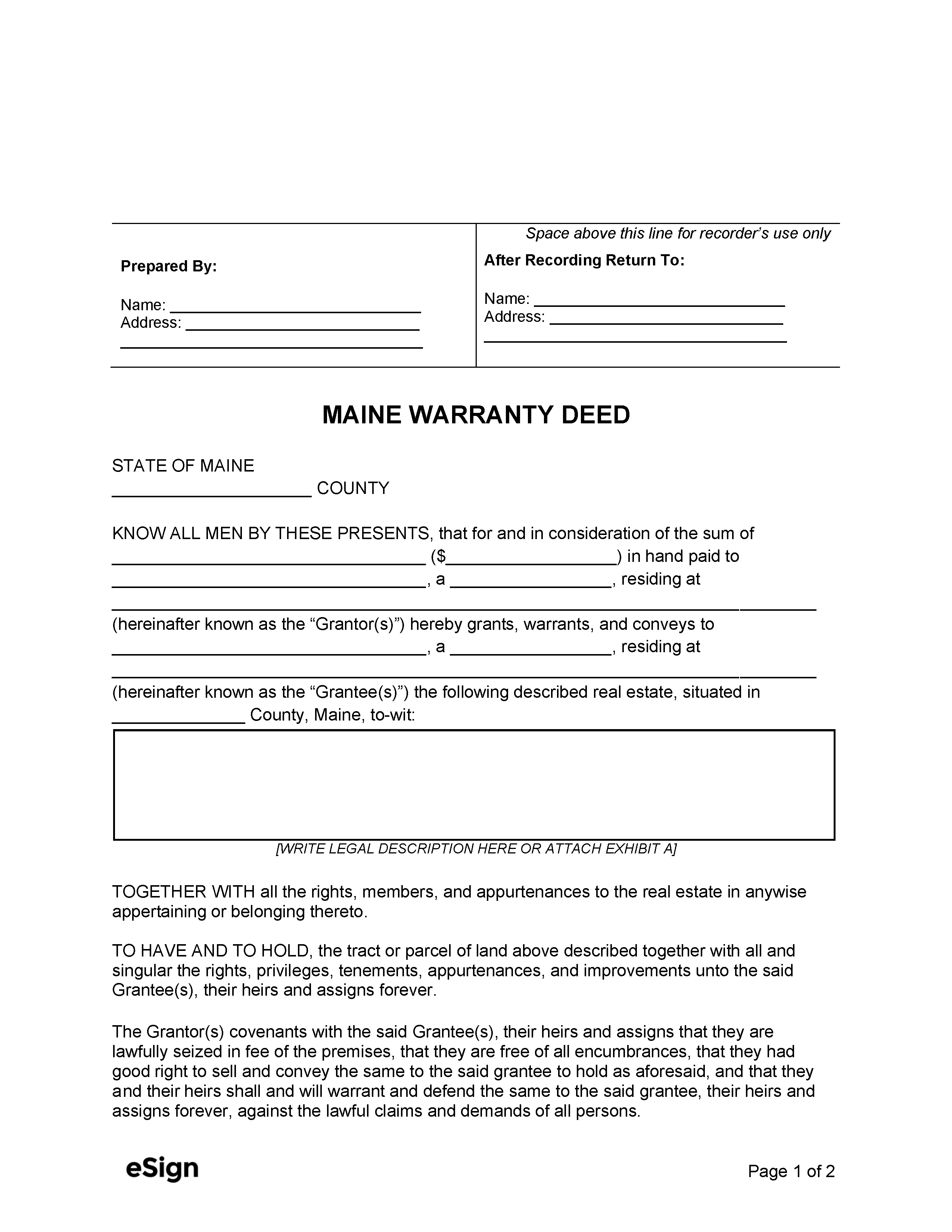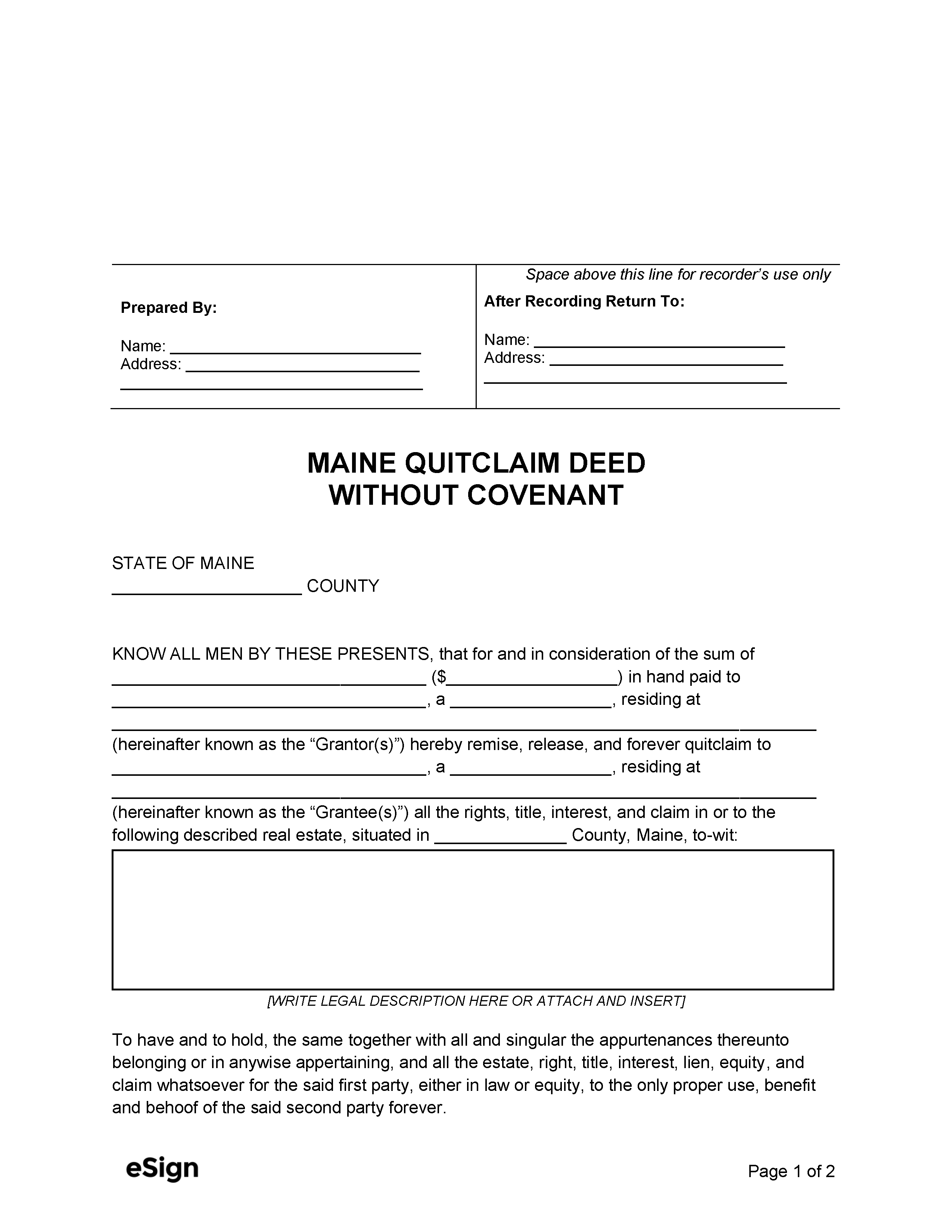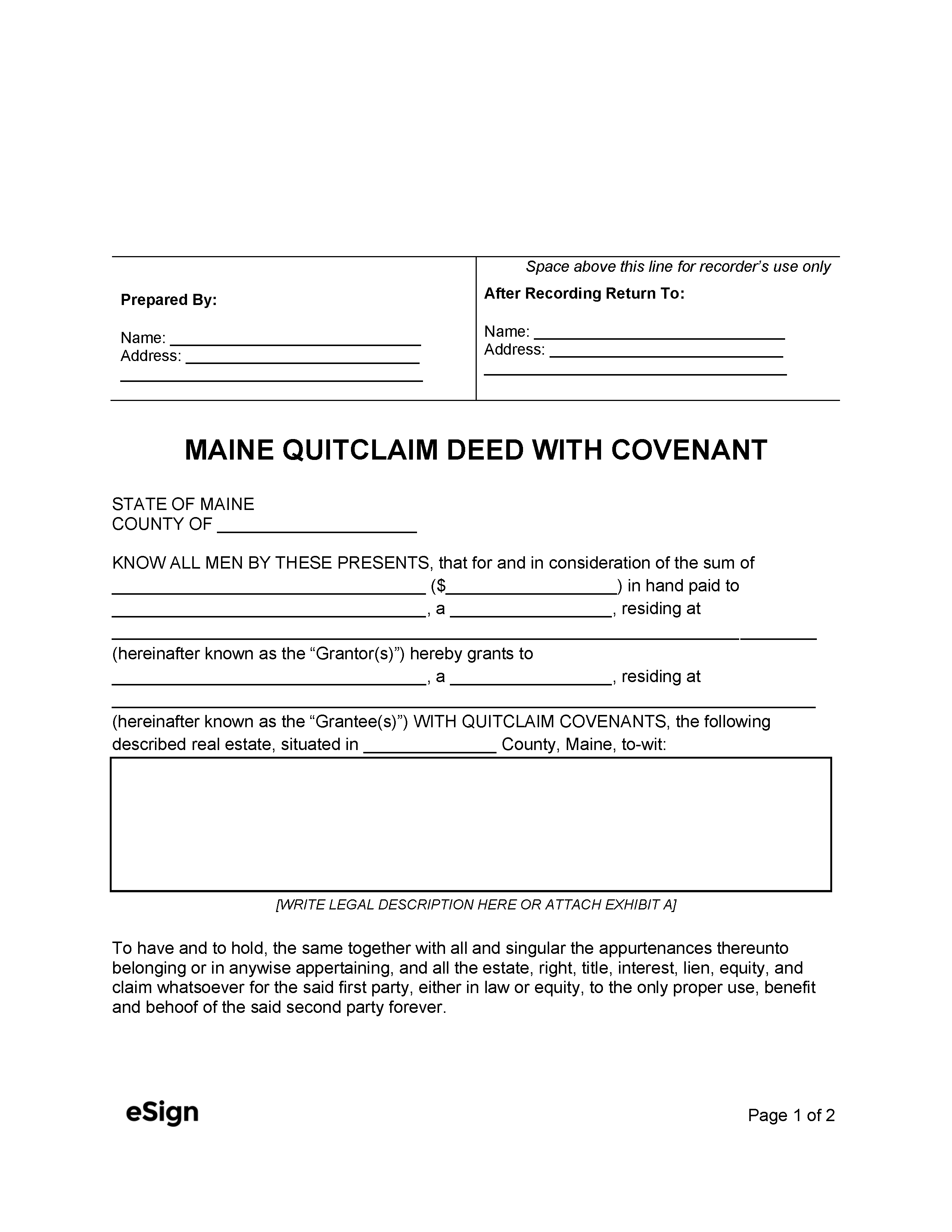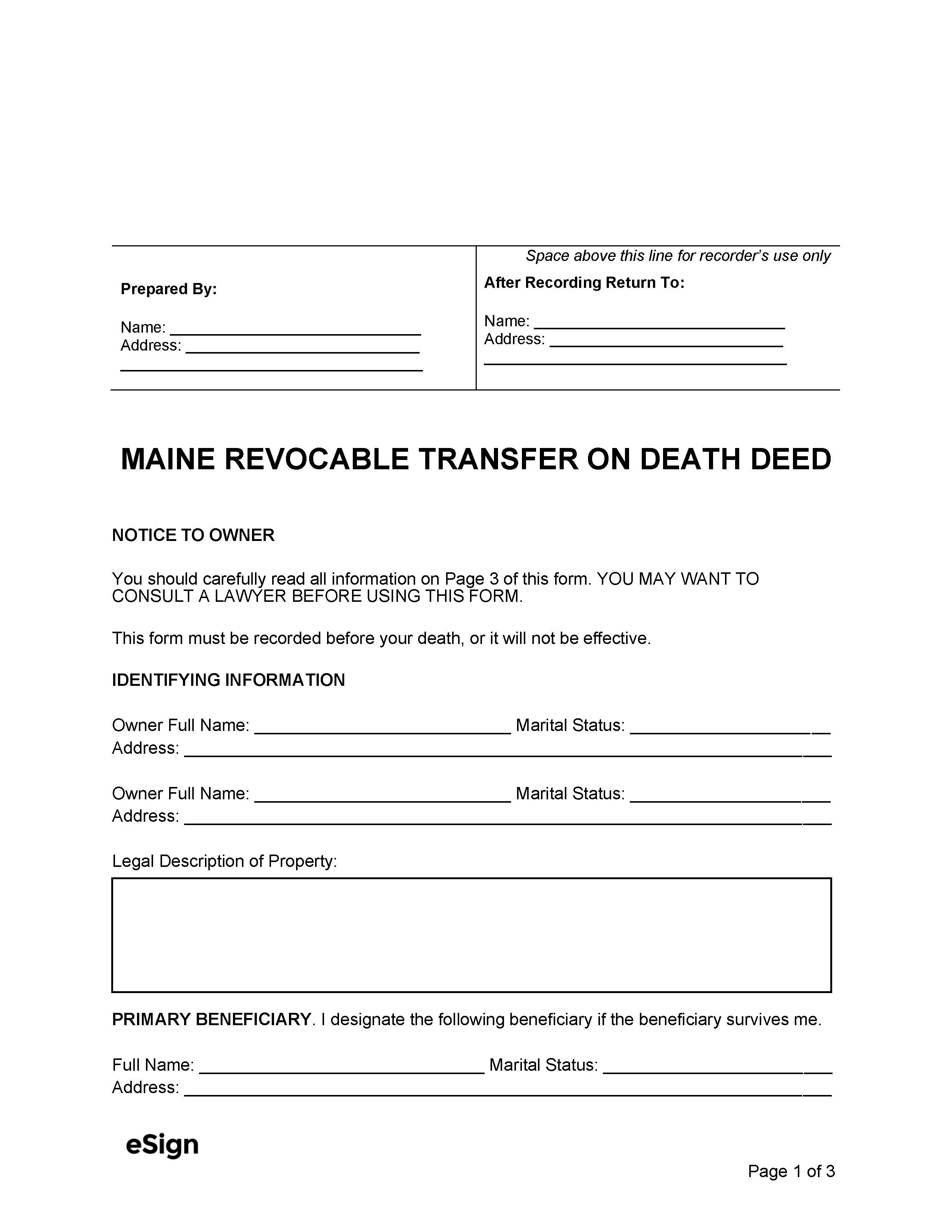By Type (4)
 General Warranty Deed – Provides the grantee with the grantor’s promise that there are no liens or encumbrances on the title. General Warranty Deed – Provides the grantee with the grantor’s promise that there are no liens or encumbrances on the title.
|
 Quitclaim Deed without Covenant – A deed that doesn’t provide the grantee with any guarantee that the property title is clear. Quitclaim Deed without Covenant – A deed that doesn’t provide the grantee with any guarantee that the property title is clear.
|
 Quitclaim Deed with Covenant – Assures the grantee that no liens or claims were caused during the grantor’s ownership. Quitclaim Deed with Covenant – Assures the grantee that no liens or claims were caused during the grantor’s ownership.
|
 Transfer on Death Deed – Used to arrange for a property title to be transferred to a beneficiary at the time of the owner’s death. Transfer on Death Deed – Used to arrange for a property title to be transferred to a beneficiary at the time of the owner’s death.
|
Formatting
Paper – Max dimensions of between 8.5” x 11” – 8.5” x 14”
Margins – Deeds must have the following margins:
- 1.75″ first page top margin
- 1″ top margin on all other pages
- 1.5″ last page bottom margin
- All other margins: 0.75”
Font – At least 10pt[1]
Recording
Signing Requirements – The grantor’s signature must be signed and acknowledged before a notary public.[2]
Where to Record – Once a deed has been signed by the grantor, it must be recorded at the Registry of Deeds in the property’s jurisdiction.[3]
Cost – $22 for the first page and $2 for each additional page (as of this writing)[4]
Additional Forms
Real Estate Transfer Tax Declaration (Online Form): Must be filed along with the transfer tax payment and deed unless the transfer is exempt.[5]
